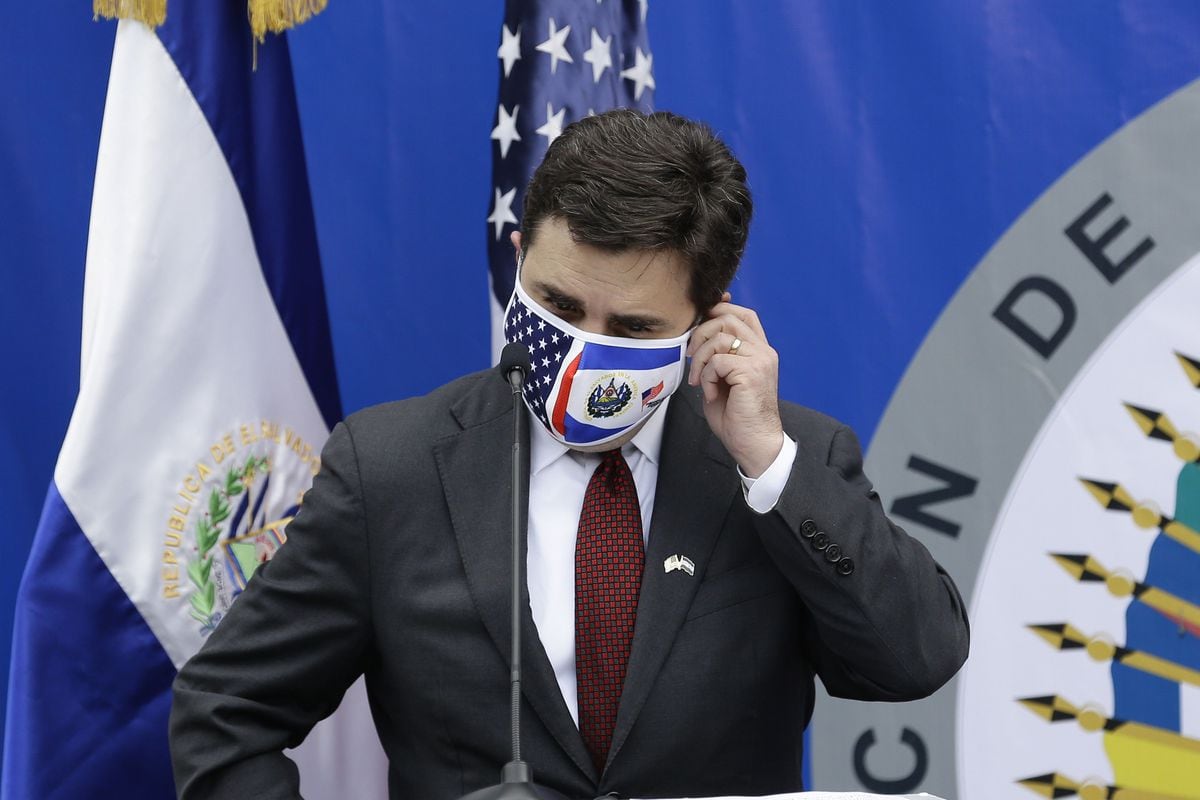

The person appointed by President Joe Biden to address the causes of the migration crisis in the United States, Ricardo Zúñiga, will travel to Guatemala and El Salvador on Thursday without being able to meet President Nayib Bukele as planned. a new gesture of distancing themselves between the governments of both countries at a time when the number of Central Americans arriving at the US southern border has reached its highest level in nearly two decades.
Zúñiga, who arrived in Guatemala on Monday, where he met President Alejandro Giammattei, will return to Washington without Bukele, who is diligently commenting on the news on Twitter, not even referring to that high-level visit on that social network or in any other public. forum. “During this trip, we asked for an appointment with the president, but we never confirmed that meeting,” Biden’s envoy said in a conversation with the media in San Salvador. A State Department spokesman told EL PAÍS that although the official had not met with the president, he had “ productive meetings ” with Salvadoran Secretary of State, Alexandra Hill Tinoco, and other high-level authorities, such as the Attorney General. . to members of civil society and the private sector.
During his visit, Zúñiga also visited the headquarters of the International Commission Against Impunity in El Salvador (CICIES) launched by the Bukele government and the Organization of American States (OAS) to investigate corruption cases and announced a donation of two million dollars. . According to the strategy of the Biden administration, strengthening the rule of law in the countries of northern Central America is an essential requirement to create the conditions that prevent Central Americans from migrating.
“The fight against corruption is fundamental in our support for the Central American countries and for the actors carrying out this mission in each country,” Zúñiga said in a speech at the organization’s headquarters applauding Bukele’s decision. its conformation. However, that same morning, the Salvadoran president wrote a tweet rejecting calls from nongovernmental organizations to the Legislative Assembly to pass a law that would make that mission independent from the executive branch.
A new symbol of distancing yourself from Biden’s government
Bukele’s rudeness to Zúñiga is the latest gesture of distance between his government and Biden’s, after some US officials publicly questioned the separation of powers in El Salvador. The last to do so this Monday was State Department spokesman Ted Price, who said he hoped the Salvadoran government would “demonstrate its commitment to transparency and accountability.”
Last week, the president on Twitter confronted Democratic California Congressman Norma Torres, who openly criticized the governments of the migrants’ countries of origin, calling Bukele a “narcissistic dictator.” The Salvadoran president responded by asking Latinos in California not to vote for her in the next election, which led to a condemnation by the Spanish caucus of the United States Congress for believing she was meddling in the political affairs of a foreign country.
Since coming to the El Salvador presidency in mid-2019, the president made it clear that Washington was his “main ally” and began rapprochement with Donald Trump’s administration. The good bond between the two leaders, who shared a love of government via tweet, was evident at a meeting they had in New York in September 2019. A month later, the United States renewed the work permit of about 250,000 one-year Salvadorans. protected in that country by the temporary protection status TPS.

Trump then said he did this in recognition of “the accomplishments and good work” of Bukele, who had signed an agreement to receive asylum seekers sent by the United States and pledged to stop immigration. Since his arrival, the Salvadoran leader has managed to significantly reduce the flow of Salvadorans migrating to the north, a trend attributed to the measures he has taken to prevent the departure of migrants, the arrest of the alleged convoys of caravans and the fall of violence and crime rates.
With the arrival of Biden, the relationship between the two countries has cooled. The first chapter of that distancing took place in February, when Bukele traveled to Washington to try to meet with a White House official, according to the AP agency, but they refused to receive because the meeting was not scheduled. The Salvadoran president denied the news and blamed whoever was spreading it, but now this rudeness is being interpreted as a way of returning the gesture.
During his trip, Zúñiga was not only in El Salvador, but also in Guatemala, where he began to meet with Giammattei and much of his cabinet and with members of the judicial authorities and civil society fighting corruption. Honduras, the country where Biden’s envoy is from and one of the main emitters of undocumented migrants to the United States in recent years, was disregarded. While the State Department has provided no explanation for that decision, it is not surprising that Washington prefers to keep its distance from Tegucigalpa after President Juan Orlando Hernández was accused by a New York prosecutor of collaborating with a cartel to ship cocaine to the US
Subscribe here to the EL PAÍS América newsletter and receive all the informative keys of the current situation in the region